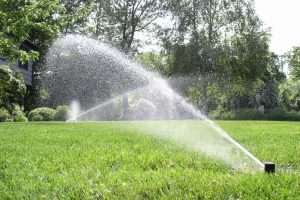India highlights water challenges in agriculture at G20

Take Stock of Livestock
January 23, 2017
Voices for AgriBudget 2017
January 24, 2017AgriNation Network
New Delhi | 23 Jan 2016
Addressing the G-20 Agriculture Ministers’ meeting in Berlin, India’s Agriculture & Farmers Welfare Minister Shri Radha Mohan Singh highlighted the need for efficient irrigation methods in agriculture. “Water is certainly the most critical resource for agriculture but the competing use of water for agriculture and non-agricultural purposes, inefficient irrigation practices, injudicious use of pesticides, poor conservation infrastructure, and lack of governance have lead to increasing water scarcity and pollution worldwide. As per the international norms, a country is classified as Water Stressed and Water Scarce, if per capita / year water availability goes below 1700 m3 and 1000 m3, respectively. With 1544 m3 per capita / year water availability, India is already a water-stressed country and moving towards turning water scarce”, he said.
 He stressed upon promoting the efficient use of irrigation that water be applied to growing crops at appropriate times and in adequate amounts and the main task will be to (i) produce more from less water by efficient use of utilizable water resources in irrigated areas, (ii) enhance productivity of challenged ecosystems, i.e., rainfed and water logged areas, and (iii) utilize a part of grey water for agriculture production in a sustainable manner.
He stressed upon promoting the efficient use of irrigation that water be applied to growing crops at appropriate times and in adequate amounts and the main task will be to (i) produce more from less water by efficient use of utilizable water resources in irrigated areas, (ii) enhance productivity of challenged ecosystems, i.e., rainfed and water logged areas, and (iii) utilize a part of grey water for agriculture production in a sustainable manner.
He also said “India will continue to extend their support in early implementation of past commitments made at the G20 Agriculture Ministers Meetings particularly on Research and Development, collaboration and knowledge transfer, action to combat food loss and waste, and information and communication technologies (ICT)”. He lauded the role of G20 economies in achieving the sustainable global food security assumes significant importance and said that there is a growing consensus about the challenges of maintaining food and nutritional security that need innovative solutions through collaborative and coordinated polices among the member as well as non-member countries.
The minister added that the world economy had made strides in increasing the global food production, but the emerging challenges of increasing climate complexities, stress on natural resources, degrading soil heath and fragmentation of land holdings posed serious risks in sustaining this growth momentum. He also stressed upon the issues that are being faced by the developing and under developed economies like poor marketing infrastructure, food losses and wastage, low coverage of institutional agricultural credit and insuring farmers’ produce from frequent climatic variations.
————————————————————————————————————–


